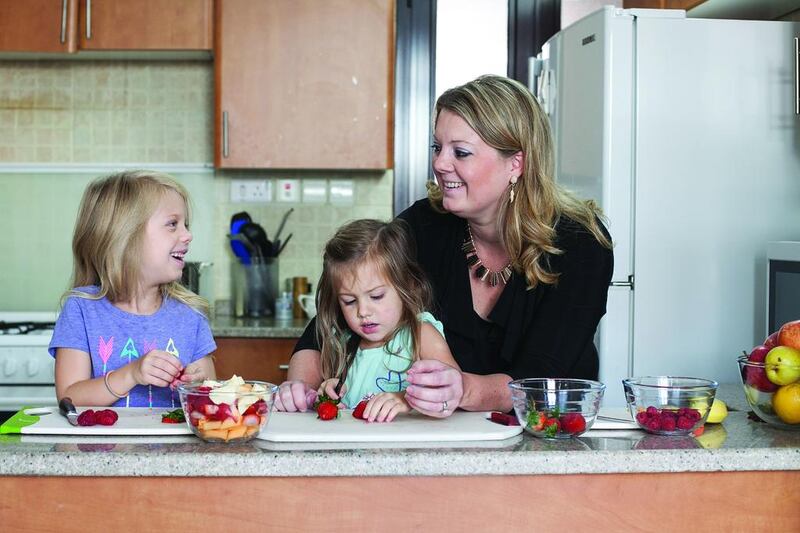If you’ve ever tried to hide smashed vegetables in macaroni and cheese or built Olaf the snowman out of radishes and carrots with chocolate-chip eyes and pretzel-stick arms, you probably have kids. And they probably have very clear ideas on what they will, and will not, eat.
One thing I wasn’t ready for when having kids is how much time I would spend worrying about their health. The concerns pop up during most meal times: how many vegetables have they had today? Are they eating enough protein? What if there’s still pesticide on that apple? How many times do I have to say “no” to chocolate-covered Rice Krispies before I lose my mind?
We have two daughters, Nola, 6 and Calla, 3. They are, of course, perfect children (what kind of mum would I be if I said otherwise?), but we have had monumental battles at our dining-room table. Nothing about raising children is easy, but getting kids to eat healthy food is one of life’s greatest mysteries.
Our youngest will eat nearly every fruit and vegetable put in front of her, but she refuses nearly all forms of protein. Our oldest (a burgeoning food critic) will often decide she doesn’t like the texture or the smell of a dish she’s loved for years and suddenly stop eating it altogether. She also seems to fear all green food.
I won’t pretend I’m a model mum when it comes to my kids’ eating habits. I lose a lot of kitchen battles. I’ve given them Dora the Explorer-shaped gummy sweets. I have said: “Eat this chicken and you can have two biscuits.” But there are some things I insist on that I know will shape them into healthier people.
Much of our effort has focused on developing a healthy relationship with food – a vital skill for a healthy life. Giving – or withholding – food should not be used as a reward or as a punishment. We started teaching our girls about the importance of each food group as soon as they could talk. Though our youngest is still too young to grasp this concept, our oldest can rattle off a list of proteins and tell you why they’re important. She knows where her food comes from. She knows the difference between good carbohydrates and bad ones. She knows what a healthy plate looks like.
We also don’t watch television while we eat. As much as my kids would love to watch Mickey Mouse Clubhouse while scarfing down toasties, there’s a lot of research that supports why you shouldn’t do this. It’s something our girls have to be reminded of every single day, but conscious eating – rather than mindless gorging – is something we don’t compromise on at home.
We try to introduce our girls to as many new foods as possible and, though it shouldn’t be done frequently, eating out is a good way to have fun with this. Our only rule: stay away from kids’ menus, which usually offer the same chicken nuggets, burgers and meat-free pasta. How will kids learn to like new foods if they’re always given the same thing? Instead, we order two main meals and two sides from the regular menu and share them. If you don’t give kids the option to eat those dreary chicken nuggets, they won’t.
My favourite way to develop healthy eating habits is getting our girls to cook with us. They cut up veggies and fruit; they measure and mix ingredients. If they contribute to the cooking, they’re far more likely to eat what we have made.
In just the first few years of our girls’ lives, we’ve learnt that the food rules we impose do pay off. They may not voluntarily choose my healthy black-bean salad over a handful of chocolates just yet, but they know why they should. And eventually that will be something they’ll thank us for.






